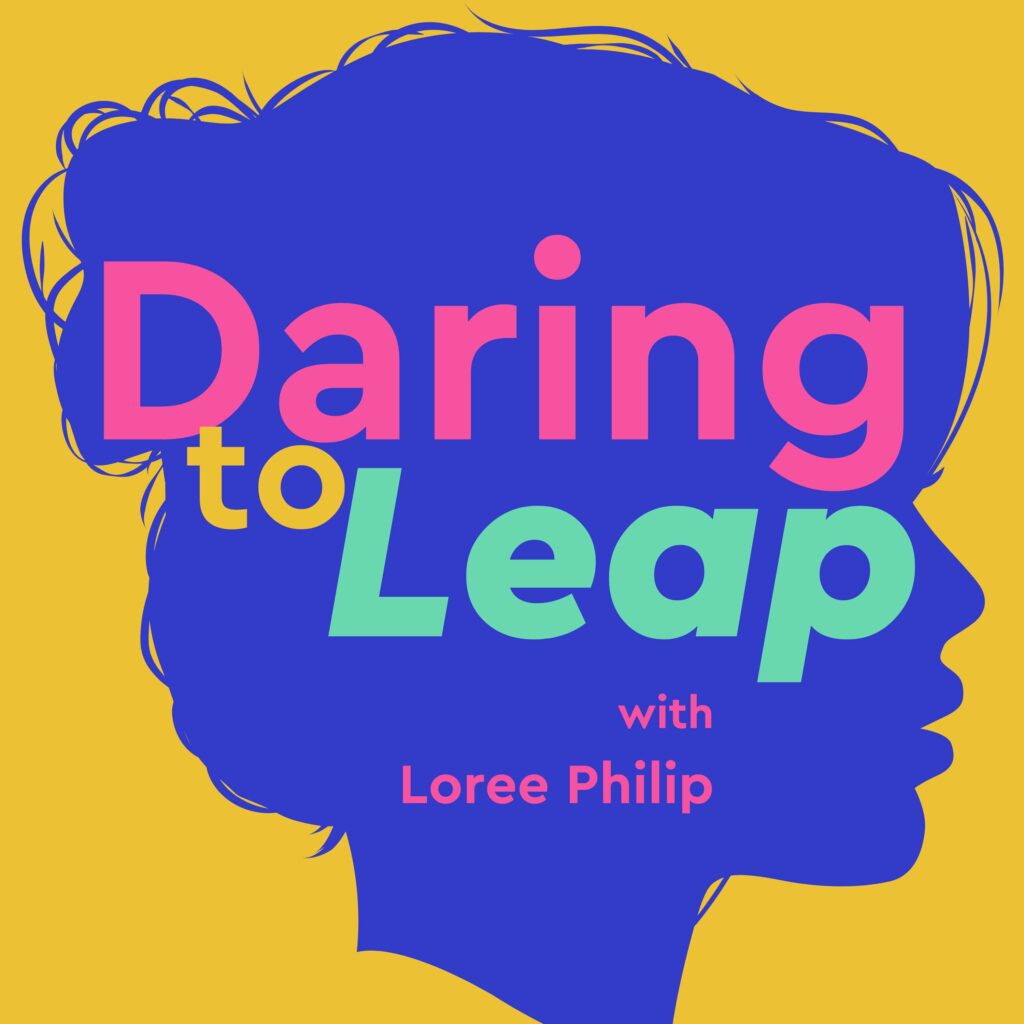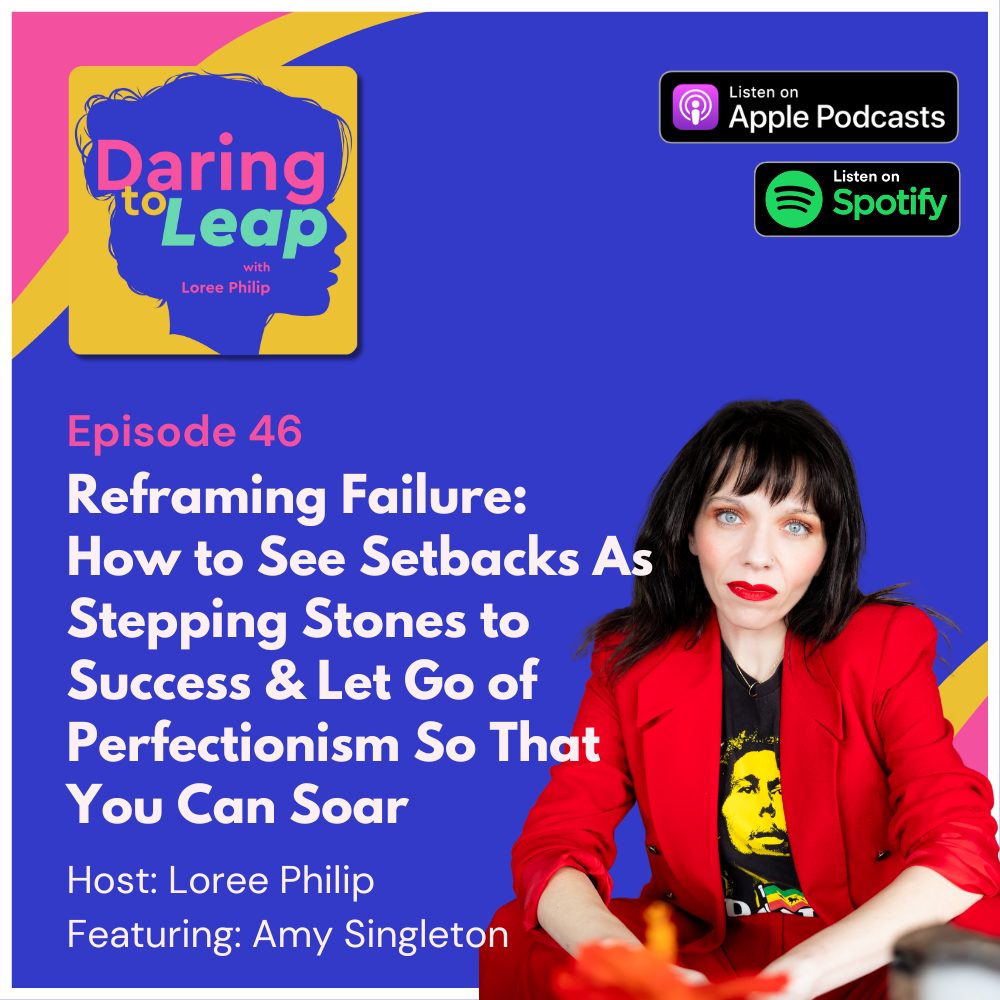How would your life change if you saw failure not as an end, but as a crucial part of your journey to success?
Today, on Daring to Leap, we’re diving into a topic that is often perceived negatively – failure. Our guest, Amy Singleton gives us a firsthand account of overcoming the seemingly insurmountable challenges of life (depression, massive health issues, divorce, losing a job she loved – all at the same time) and turning so-called failures into pathways for success.
Get ready to shift your mindset about failure and start to let go of perfectionism so that you can soar!
By listening to this episode, you’ll gain:
- Tangible advice on how to shift your mindset and embrace failure as a learning experience
- Hear how Amy got back up after hitting rock bottom
- Invaluable insight on leadership and vulnerability
- Powerful perspectives on overcoming perfectionism, a common hindrance many of us face in achieving our potential
- Develop strategies to face fear and societal pressure, enabling you to take bold leaps in your life and career.
Tune in to this episode of Daring to Leap to empower your perspective on failure and start to turn your setbacks into success!
Connect with Amy:
IG: https://www.instagram.com/therealamysingleton/
More from Host, Loree Philip:
GET YOUR FREEBIE! Career Energy Boost GUIDE: 5 Strategies To Add Life And Vibrancy To Your Career – Grab your copy HERE.
Are you ready to shed self-doubt and fears that are keeping you from taking your leap?
Let’s chat! Book a FREE Confidence to Leap call with Loree Philip: HERE
Connect with Loree:
Instagram – @loreephilip
LinkedIn – @loree-philip

